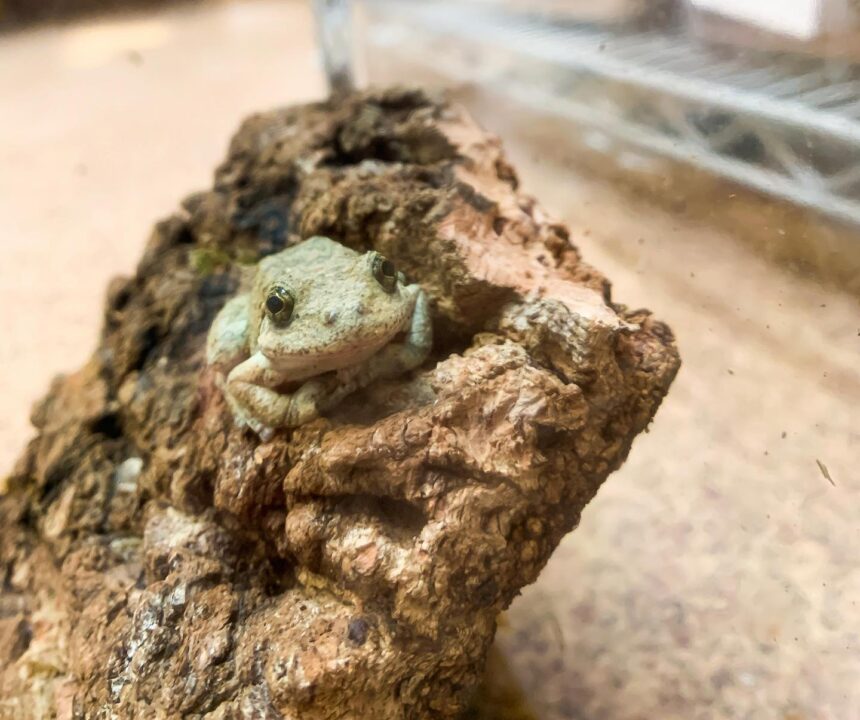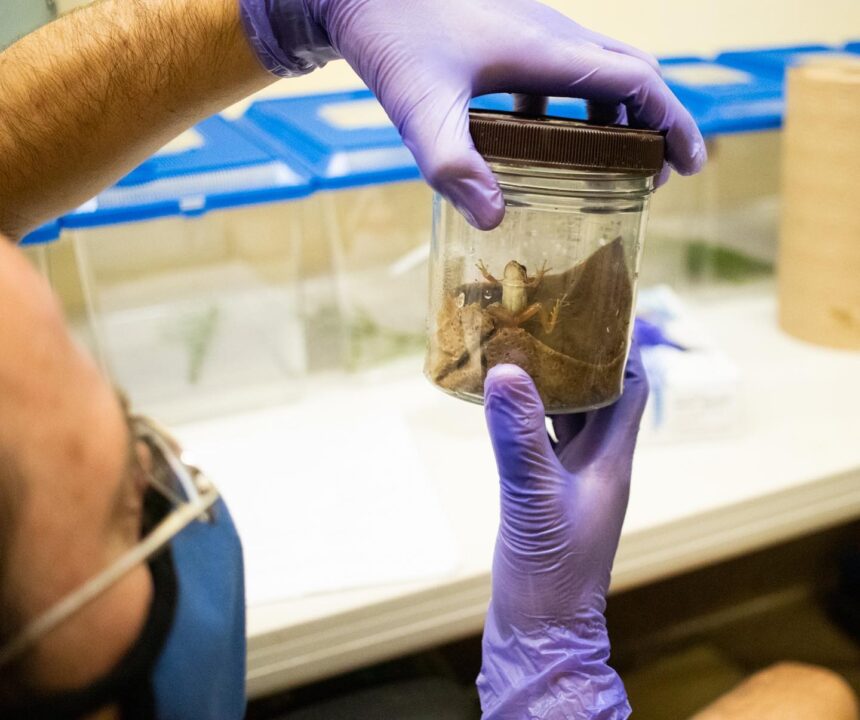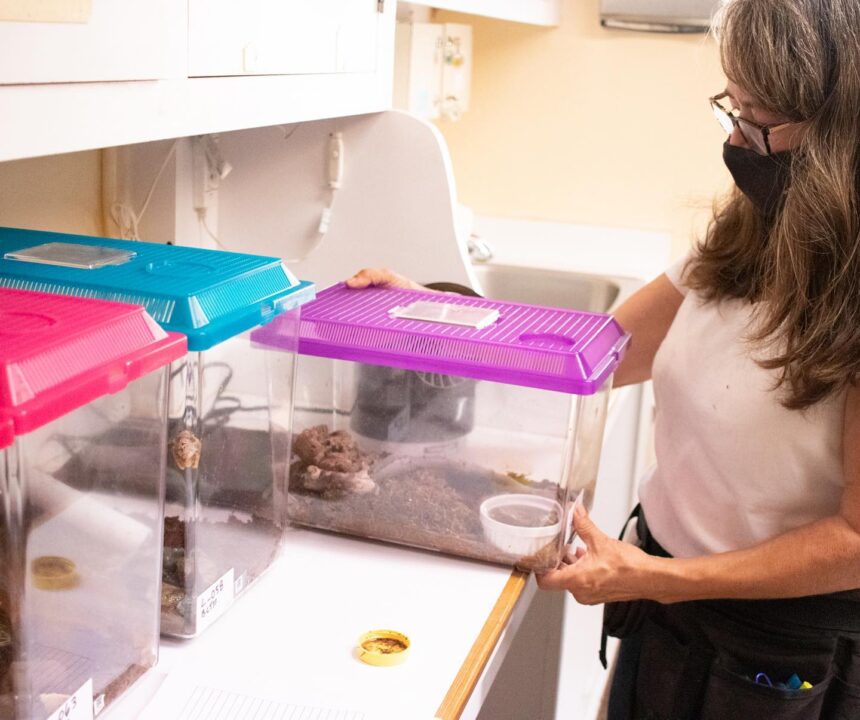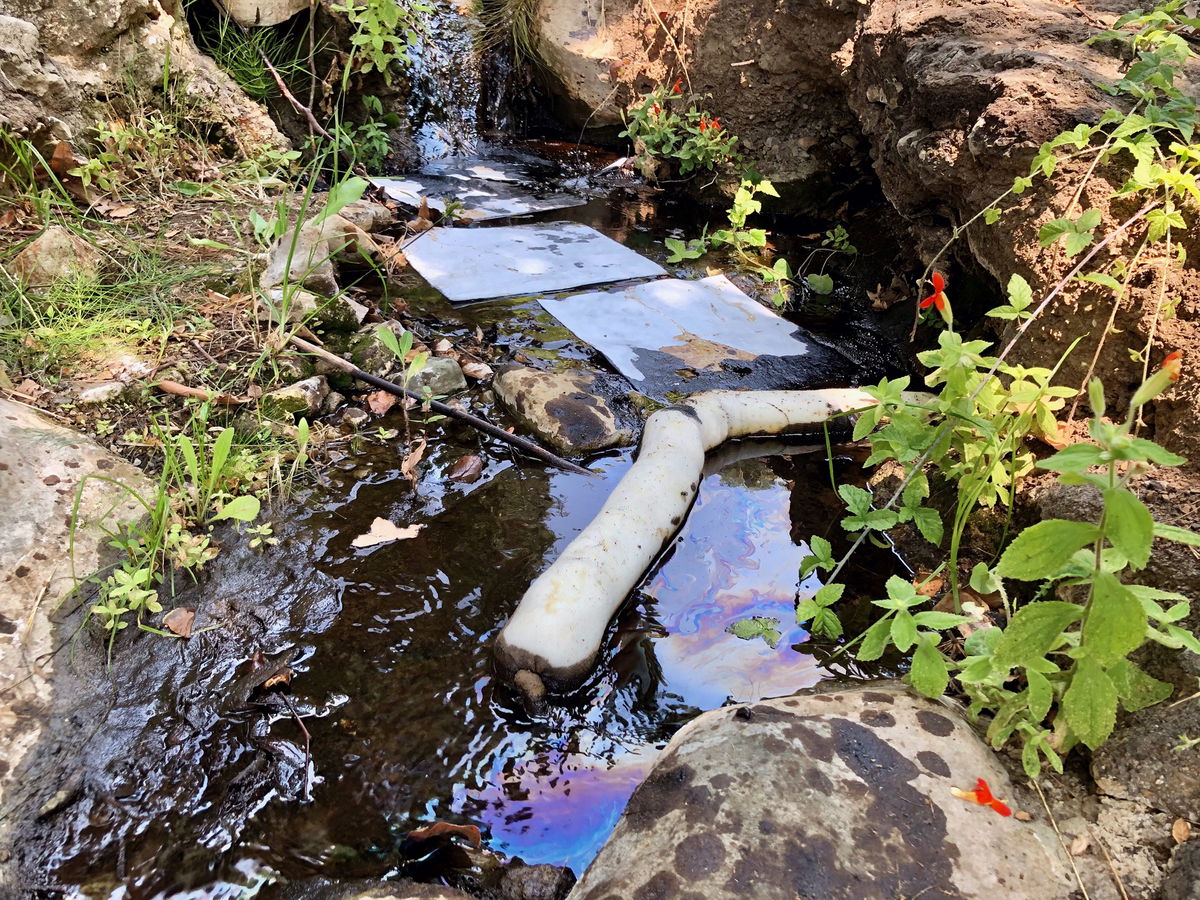92 tree frogs rescued from Toro Canyon Creek oil spill released back into wild



SUMMERLAND, Calif. - More than 90 small frogs were released back into the wild this week after being recovered from an oil spill at Toro Canyon Creek near Summerland.
The frogs were rescued in August by the California Department of Fish and Wildlife Oiled Wildlife Care Network (OWCN) and Santa Barbara's Wildlife Care Network (SBWCN).
Crews said the frogs were found coated in oil. They were washed and rehabilitated back to prime health before being prepared for release.
SBWCN said most of the patients were Baja California tree frogs.
After undergoing a final health exam, all of the tree frogs were released into a clean, watery area.
After receiving care, 92 #frogs recovered from the Toro Canyon Creek oil incident underwent a final health exam. With clean bills of health, all of the frogs were released back into the wild & the #OWCN response team has finally returned home from the field. @CalSpillWatch pic.twitter.com/ogJCrSMnEw
— OWCN (@oiledwildlife) August 31, 2021
Officials explained the oil leak at Toro Canyon Creek came from a natural seepage near a well that was built back in 1882 by the Occidental Oil Company.
The Environmental Protection Agency retrofitted the oil site to prevent seepage in the 1990s by "building an oil and water separator facility at the well."
Santa Barbara County said it had monitored and maintained the separator facility since 2009, but in August 2020, a small leak was discovered in a pipe that connects to the facility. They said it appears the pipe was damaged during the 2017 Thomas Fire.
The Office of Emergency Services was contacted and the county obtained a state grant to repair the damaged pipe in March 2021. Repair and cleanup work began months later in July.

Officials said they found 17 small birds, 13 bats and one squirrel had dead as a result of the leak. The 92 oil-coated frogs were also found and rescued during this time.
The California Department of Fish and Wildlife Office of Spill Prevention and Response estimated between 420 to 630 gallons of oil had leaked into the creek.
County officials said they are working with federal and state workers to plan long-term system improvements despite an EPA study from the 90s that determined it was impractical to cap the well.
